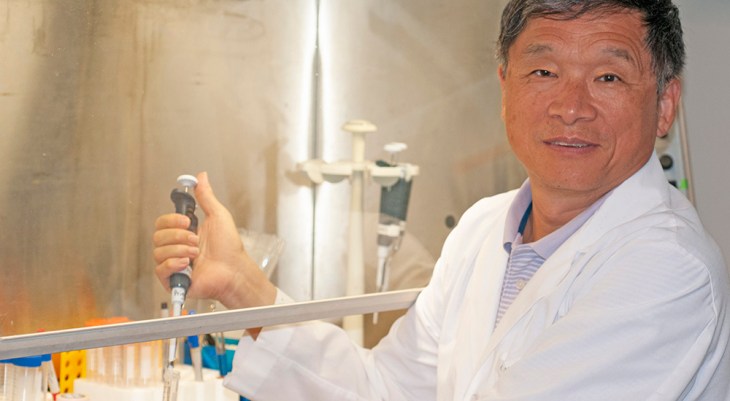
Of the nine million Veterans in the United States, one million aged 50 and older will develop colorectal cancer over the remainder of their lives and nearly 433,000 Veterans will die from it. But one VA research team is working hard to change those numbers.
Dr. Liu Kebin, a research biologist with Augusta VA in Georgia, was recently awarded $1.2 million to further his colon cancer immunology research for four more years.
VA’s Office of Research and Development awarded the funds to Kebin to continue this Veteran-centric research detecting tumor cells and immune cell interaction in human colon cancer.
Nationally, the five-year survival rate for colorectal cancer among Veterans is about 40 percent while the general population’s survival rate is around 60 percent. Kebin’s research might help advance more effective therapies in battling the disease.
Research for colorectal cancer complex but mission is simple
“My research team and I are exploring ways to develop more effective and safe Type I interferons (Type I IFN) therapies for human cancer treatment,” Liu said.
Type I IFNs are small proteins secreted from human cells. They “interfere” with an invader in our body, such as a virus, and are our first line of defense. Scientists are taking notice.
“The success of the COVID-19 mRNA vaccine used lipid nanoparticles to deliver biologic materials to the human cells to treat the virus,” said Liu. “Our research uses lipid nanoparticles to deliver DNA to tumor cells to suppress cancer.”
The research is complex, but the mission is simple: enhance the efficacy of cancer immunotherapy.
“We hope the lipid nanoparticle IFN treatment can one day be used to treat patients with colorectal cancer,” Liu said.
Here is a more in-depth technical look at Liu’s research.
Author:
